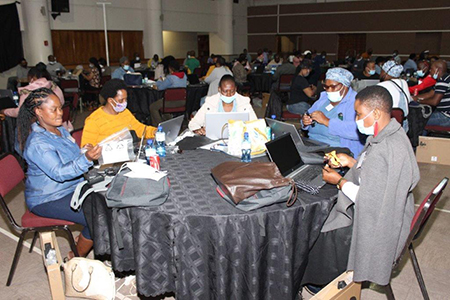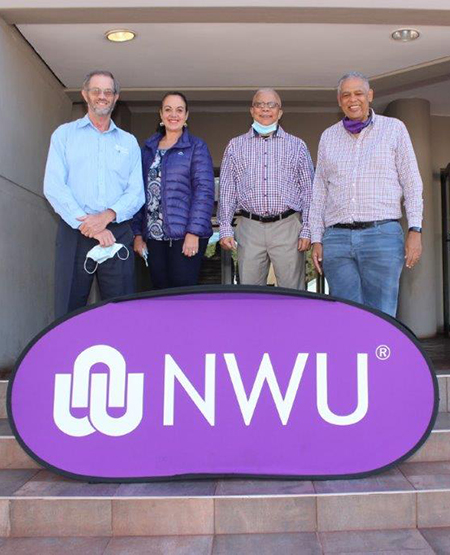The Faculty of Education of the North-West University (NWU) was selected as the preferred provider for presenting a unique Advanced Diploma in Education to school leaders in the Northern Cape.
The School of Professional Studies in Education in the faculty negotiated with the SOIC Community Development Trust in Sishen in 2020 to become a partner in training school leaders in this province.
The Advanced Diploma in Education, which focuses on education leadership and management, is a newly registered qualification that is being presented for the first time. It was developed nationally and is a professional and entry-level qualification for principals, as envisaged in the South African Standard for Principalship.
Prof Lloyd Conley, the executive dean of the Faculty of Education, says he is excited about this programme and is looking forward to the impact it will have on schools in the Northern Cape.
He says this is the pilot presentation of the advanced diploma, and that the participants from the John Taolo Gaetsewe District (formerly known as Kgalagadi), the Tsantsabane (the former Postmasburg) and the Thabazimbi Local Municipalities are doing ground-breaking work.
The induction of the first students took place in Kathu from 28 to 30 April 2021. During this time each student received a laptop and monthly data, and attended an introduction session with their lecturers.
As this is a web-based programme, these computers are a necessary tool for the success of the participants.
“We urge participants to use these computers not only to do their studies, but also to enrich the schooling experience of learners in their schools. It is during these challenging times of the Covid-19 pandemic that teachers are required to do remote teaching and the tools will be a critical part of the teaching experience,” says Prof Conley.
Prof Conley and three lecturers from the School of Professional Studies in Education, Prof Jan Heystek, Dr Molly Fuller and Dr Arrie van Wyk, attended the sessions to familiarise the students with the academic and research side of the programme. Prof Conley also welcomed the participants and motivated them for their two-year journey with the NWU.
He says a lot of work went into the development of the advanced diploma, especially taking into account the current challenges presented by the Covid-19 pandemic, as well as the fact that all the students are full-time school principals.
The programme is a 120-credit qualification, and is presented according to a blended-learning approach over two years (2021 and 2022). It comprises eight modules, and also follows a socio-cultural approach to learning and academic literacy. This approach is rooted in an understanding of learning as a social practice that is embedded in the contexts in which one lives and works (the cultural).
Prof Conley acknowledges the role of the SOIC Community Development Trust and the Northern Cape Department of Basic Education in the success of the students. The NWU received funding from the trust in August 2020, and the faculty is pleased that the trust supports the education, training and skills development strategy, therefore prioritising teachers’ professional learning to enhance management and leadership capacity in these communities.
He says this professional qualification is aimed at empowering school leaders to effectively and strategically transform their schools.
“The programme requires students to incorporate technology and research to ensure that the programmes they present are aligned with the use of technology in teaching and that learners are prepared for the challenges of 4IR. We believe this intervention will assist in preparing students to become valued citizens of our country and to compete in the global market.”

Participants taking part in the workshop held in Kathu.

From left are Prof Lloyd Conley, executive dean of the Faculty of Education, with the lecturers who is presenting the advanced diploma – Prof Jan Heystek, Dr Molly Fuller and Dr Arrie van Wyk.
